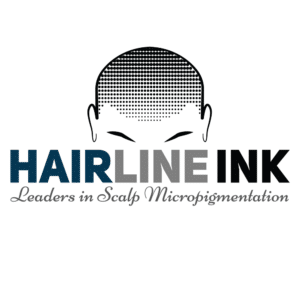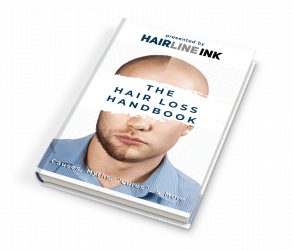Hair loss is very common and noticing that your hair isn’t as lush as it used to can happen gradually or all at once. Most often, the cause is completely natural, and many people will look into options like scalp micropigmentation, which is a great option for those who choose it. For those of us who are still considering whether it’s time for such treatments, there are a number of options to keep hair healthy naturally.
When it comes to natural remedies for hair loss, the experts typically agree that there is no “silver bullet” to regain hair or prevent hair loss naturally. While doctors do recommend some supplements and lifestyle changes, there doesn’t seem to be an effective solution that has a noticeable effect on hair loss.
Paradi Mirmirani, MD, a dermatologist with Permanente Medical Group in Vallejo, California, spends her time trying to steer her patients away from products that are usually recommended by friends and/or family members because they are usually costly and have no benefits. In Mirmirani’s own words, “Most natural hair treatments are bunk.’
While few natural treatments have actually been scientifically studied for hair loss, there are a few substances that may allow you to hold onto some hair longer. Vitamin deficiencies, thyroid problems, as well as menopause, are three of the top reasons why you might be experiencing more than the usual amount of hair loss. If a medical condition is causing your hair loss, it will need will need to be remedied before any hair treatments can be tried.
According to Molly Roberts, MD, the president of the American Holistic Medical Association, “If something needs our attention, you fix that and the hair takes care of itself.” While Roberts does acknowledge that medication is sometimes needed, other methods of treatment are often tried beforehand.
For example, Sally Kravich, CNHP, a nutritionist, and author, believes that looking good “is a good way to inspire people (to eat better) – we all want shiny eyes and radiant hair and skin.” Kravich encourages her patients to consume nutrients from the food they eat, which is often easier said than done as many people do not have the best diets.
Protein is also vital to strengthen hair and promote growth. People are able to consume protein by eating meat, beans, and dairy. Specifically, two to three 3-ounce servings of meat are recommended per day or a combination of four to five servings of dairy and beans per day. Kravich also recommends for those suffering from hair loss to incorporate into their diet fish, nuts, eggs, and seeds. These are all important because they contain omega-3 fatty acids, which lower inflammation and thereby create a healthier scalp.
However, despite all of these specific food recommendations, it is important to not eat too much of the same thing repeatedly. For example, Kravich recommends her patients to eat six to ten servings of vegetables every day, two to four helpings of fruit, as well as some grains, legumes and meat potatoes. Other naturally occurring substances that can help prevent hair loss include iron, zinc, and biotin.
According to the Cleveland Clinic, iron, however, is only recommended in the event that you have tested positive for anemia, which can cause hair loss. As for zinc and biotin, they are merely assumed to help with hair loss because people who suffer from metabolic disorders usually have thin hair and/or brittle nails. These substances are not encouraged, but are curiously not discouraged either. According to the National Institute of Health, saw palmetto is sometimes used for hair growth, but no evidence has been found to support this particular theory.
Most of the problems can be solved through a change of habit or the addition of hair-care routines. Other problems may be hormone-based or hereditary, so you should visit a doctor or get hormone levels checked when you begin to notice a thinning hairline. Here are some options for keeping your hair healthy:
- Add proteins, vitamins, and antioxidants to your diet. Fish and egg whites are an excellent way to boost your protein consumption, and the antioxidants in drinks like green tea can make hair care both delicious and low-effort.
- Drink plenty of water!
- Stop the bad habits like smoking, frequent drinking, or grabbing those caffeinated beverages.
- Beginning a regular workout routine can help your hair in more ways than one.
- In as many ways as you can manage, try to reduce sources of stress. A happy emotional state often translates to healthy hair!
- Begin to apply oils and juices to your hair. Natural oils like coconut, olive, and almond can do wonders in a deep head-massage.
- Essential oils can be used as a part of the natural oil massage or after shampooing. Lavender, rosemary, and thyme can work wonders! As an alternative, garlic, onion, and ginger juices can also be massaged into the scalp and left overnight.
At the end of the day, simply “being nicer” to your hair can help! Avoid too much heat, chemicals, and styling products and try to brush less frequently and use wide-tooth combs if your hair is wet.
While some of these remedies may be effective in making your skin and hair look healthier, they are not dynamic solutions to a serious hair loss issue. Scalp micropigmentation (or SMP) is a proven hair loss solution that looks great and is less costly than some other, less effective, treatments. Have questions about hair loss? Hairline Ink has the answers. If you or someone you know is suffering from hair loss, contact our team of experts to learn how scalp micropigmentation can help you to defy hair loss and reinvent the way you feel. We offer Scalp Micropigmentation in over 50 US cities. Call or text us today at 833-HAIR-INK (833-424-7465) to schedule an appointment, learn about our pricing, or to get a free quote!












